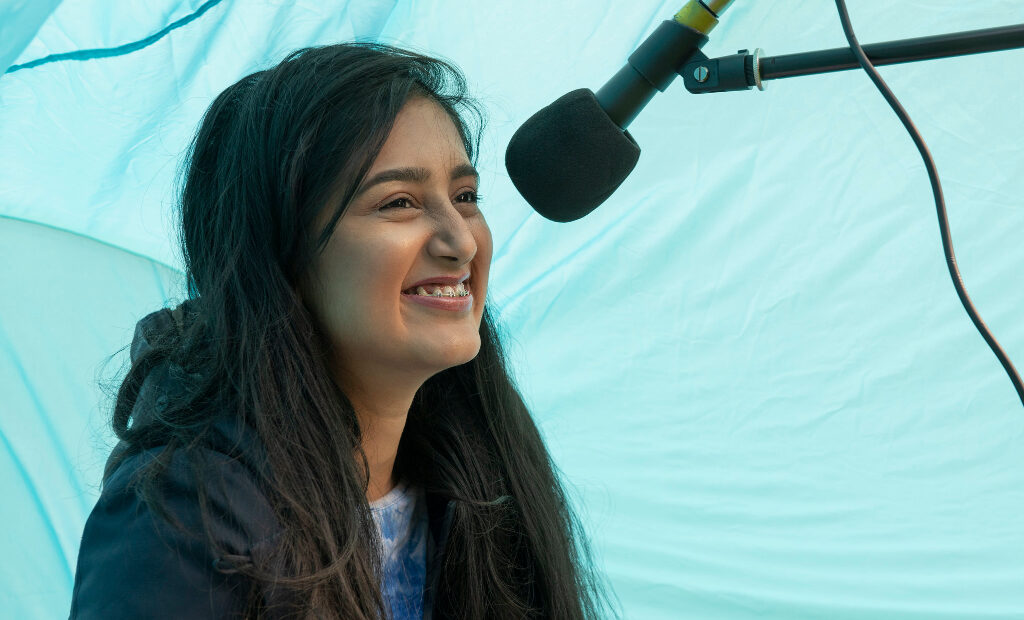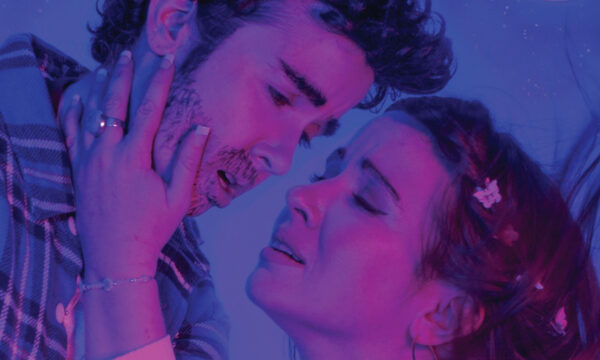Conversations About Mental Health: Real Talk with 20 Stories High Youth Theatre and Luke Barnes

20 Stories High is a theatre company working with and for the young working class and diverse audiences. Their newest project, Chokka, tells the story of 16-year-old Jem attempting to fit into a community where they are “othered.” Combining elements of poetry, music and dialogue, the play is written by Luke Barnes with various members of 20 Stories High Youth Theatre.
Luke Barnes, director Nathan Powell and 20 Stories High member Rosie have offered us an exclusive interview to gain an understanding of the project and the many voices of its participants.
What is Chokka about, and how did you first get the idea?
Luke Barnes: I came into the process with the idea that I know nothing about young people or what they’d want to make a show about, so the process was about listening to them, their concerns, and making something that they wanted to talk about – including depression and insomnia. Our job was to try and structure those thoughts into something that will reach the most people and have the most impact.
When the Covid-19 lockdown restrictions first began, many theatre companies moved their projects to Zoom and similar video platforms. Why are you opting for an audio format instead?
LB: The show was initially designed for a theatre, but I think we’ve actually ended up with something much more accessible. Something that could be engaged with by anyone that had access to the internet at their own convenience. We’re not filmmakers and don’t have the skill set or the equipment (or budget) to make a film, and I find Zoom readings boring so audio felt like the best way to engage the most people.
Nathan Powell (director): It felt like an exciting new way of working with the young people, where they could enjoy working in a new way and some (safe) face-to-face contact and also be really proud of the result. We knew we could create a piece that had the quality of the theatre version, with audio that we wouldn’t have achieved in a film or on Zoom.
How are the members of 20 Stories High Youth Theatre dealing with the heavy themes explored in Chokka, such as love, jealousy, depression and friendship?
Rosie (20 Stories High member): Keeping in contact is difficult when you can’t see people in person, but the young people at 20 Stories are coming up with creative ways to communicate, and this has an undeniably positive effect on mental health.
NP: Knowing that the support of our youth worker Donna and producer Lucy is always there. We are speaking about these things openly and honestly and, as the themes have been inspired directly by the young people, it feels like nothing new. 20 Stories always encourage creative outlets such as poetry and spoken word to explore concerns, and this is not only a strong tool for the group, but also feeds in beautifully into the podcast.
Chokka is primarily the result of collaborative work with members of 20 Stories and Luke. How exactly did the writing process work?
NP: We wanted Chokka to combine high-quality writing and directing with the stories of the youth theatre – combining them in a unique way to platform their voices. Luke would often come to the weekly sessions and observe and ask questions to hear what stories the group wanted to tell. He’d use this to write sections, leaving gaps for the members to fill with creative responses to the themes of the play through poems, spoken word and songs.
It was important there was space for the group to respond to the structure of the piece as well as the content. We were working with a very experienced writer, so it was great to have the group learn from Luke. When we moved online, the group’s individual responses became a lot more self-driven, which they coped with excellently.
Luke, what inspired you to become a writer?
LB: I used to be an actor and didn’t get on with it as a job really. I always felt a bit directionless and a bit out of control. I started writing to make a show for a friend who I thought was awesome (Ria Zmitrowicz) and was lucky enough to carry on doing so!
How does the current play in audio format differ from the initial concept of Chokka as a traditional play for the stage (aside from the obvious)?
LB: The original play was pretty audio-friendly. It was a lot of storytelling with a platform for the young people to make the awesome stuff they make, like songs or poetry. But pretty similar really!
NP: We leaned more heavily into the stories that the young people could tell us outside of the main narrative. It felt important we could hear directly from them at this moment in time, and get a real snapshot into the world of young people today. As an audience member I think it feels like a privilege to be given that window briefly.
Do you think Covid-19 will have a lasting impact on the way we perceive and engage with theatre?
LB: Absolutely. I have no idea how though. Definitely a lot of reflection about why we do anything…
NP: I hope it pushes some positive change. Not sure how, but I hope we continue to make sure our work is more accessible. I hope we have been harshly enough confronted with how important our audiences and potential audiences and participants are, and we work hard to give them the best most accessible and important experiences we can.
Given the presence of competing media formats (i.e. video via Zoom, YouTube or even traditional television), what measures are you taking to ensure Chokka reaches as wide an audience as possible?
LG: We’ve really done our best to try and think firstly of all the most accessible ways. We asked our young people about podcasts, and noticed the increased demand is on the more well-known, well-used platforms, such as Apple Podcasts, Spotify, etc, and so we’ve made the commitment to host these podcasts here. However, we’re aware that it’s not always free to access these sites, so we also have the podcast available on our SoundCloud.
Beyond that, we looked a bit deeper for our deaf and disabled community and also have the podcast available as a text transcript, and a visual-text transcript on YouTube.
Additionally, we really hope that young people connect with the themes of this piece, and that parents, guardians and workers of youth services gain some understanding from it. And so we are spreading the word as far and wide as we can with our local community partners, and our national following on social media.
You state that you are hoping that theatre will enable communities to lead dialogue and open conversations. What dialogues do you hope Chokka will enable?
LG: Our youth theatre, a community of young people, shared the concerns that affect them, and, in doing so, we hope they provoke increasingly open conversations about mental health. Chokka brings together real stories from our community and, in sharing these experiences, we all learnt more about each other and how to care for each other. We hope the podcast will help young people understand that there is always someone to turn to. It doesn’t have to be a professional – friends, family and peers can also be sources of support.
Rosie: Theatre is primarily a form of entertainment. However, it has a more important role as being a form of social change. The story told in Chokka is relatable at some point, and to some degree everyone has experienced love, loss or an issue with mental health. There is no shortage of people to talk to about these things, but there is a social stigma about being vulnerable, especially for young men. With an increasing rate of mental health issues worldwide, it is essential that these conversations are happening. If Chokka can be a way of opening up discussions and allowing people to know that sharing their stories is okay, that would be brilliant. No one should feel isolated and alone like our character Jem, and we hope that Chokka shows that although there is no one magical way to heal and grow, there are always people who will help you.
NP: I really hope young people and their parents/carers listen to it together, or that parents/carers listen to it by themselves and feel comfortable starting a conversation with their young people, exploring what it feels like for the young people in this world.
Do you have any other projects lined up for the near future?
NP: 20 Stories High have lots coming up. Our next project in development is commissioned by the Wellcome Collection and explores the theme of Touch. We’ll also be releasing a film later this month that features our Black Youth Theatre members exploring what it means to be Black and Scouse.
Rosie: Many of the young people at 20 Stories High are busy creating their own work so keep an eye out for some rising stars!
Michael Higgs
For further information about 20 Stories High and future events visit their website here.

























Facebook
Twitter
Instagram
YouTube
RSS